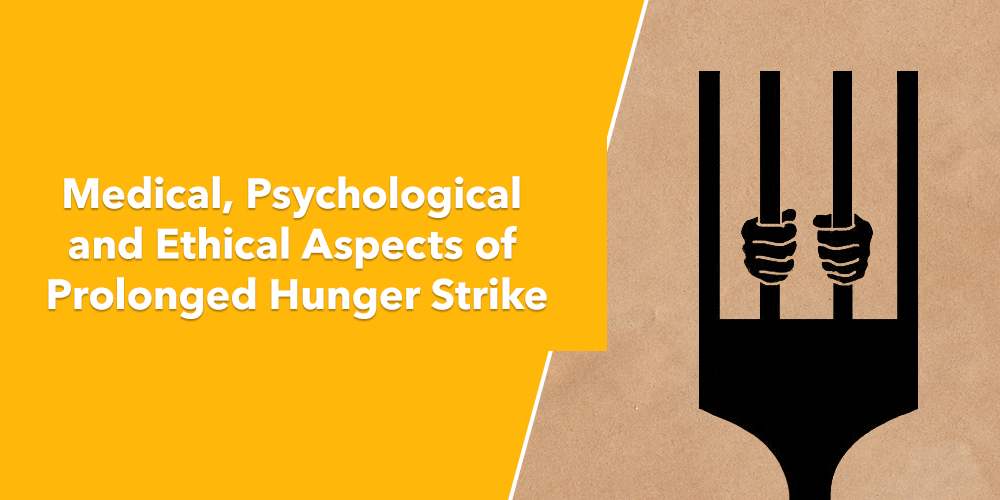ABSTRACT
In the year 2000, Turkey faced many hunger strikes in prisons. The reason was the launching of the new F-type type prisons which were designed with high-security facilities and isolation cells. Thousands of prisoners went on prolonged hunger strikes to protest the introduction of these new F-type prisons. The duration of hunger strike periods was up to 300 days or more. Because of these hunger strikes, 112 people died, and hundreds of people lost their health and became disabled.
As a result of the hunger strike actions, a diverse number of health problems have arisen. Duration of the action, the way the action ended (forced or willingly), the amount of food and beverages taken during the hunger strike, and the individual characteristics of the striker had particular effects on the type and severity of the health problem occurred. Wernicke’s Encephalopathy, Wernicke-Korsakoff Syndrome, nutritional peripheral polyneuropathy, common and proximal muscle weakness, severe or temporary amnesia conditions, disartry, spasticity, hand tremors, vertigo, deep sense disorders, digestive system diseases, posture problems and muscle and joint-related pain are some of these health problems. Among these clinical pictures, Wernicke’s Encephalopathy and Wernicke-Korsakoff Syndrome are known as the ones which develop due to a decrease in the Thiamin (vitamin B1) supply. Other clinical pictures mentioned are mostly related to malnutrition or to a lack of essential nutrients, primarily proteins, fatty acids and other vitamins. Also, PTSD, depression and other psychiatric pictures were to have occurred. These medical and psychological conditions need intense and long term care and follow-ups.
HRFT currently offers medical and psychiatric treatment, physical therapy and rehabilitation to 614 hunger strike survivors. 563 of such consist of hunger strikers who admitted to HRFT subsequent to the hunger strike actions made in the year 2000 and later. Most of the admissions were made in the years 2001 and 2002 (in 2001, 338; in 2002, 185; in 2003, 40 admissions). 51 of the total admissions were made as a result of the similar hunger strike actions made prior to the year 2000 (such as the hunger strikes made in 1996 and before).
In this paper, we present some detailed medical and psychological consequences of this specific period of hunger strike actions. Also, ethical aspects of hunger strikes in the light of the experience by the Human Rights Foundation of Turkey and the Turkish Medical Association are to be discussed.
z***

